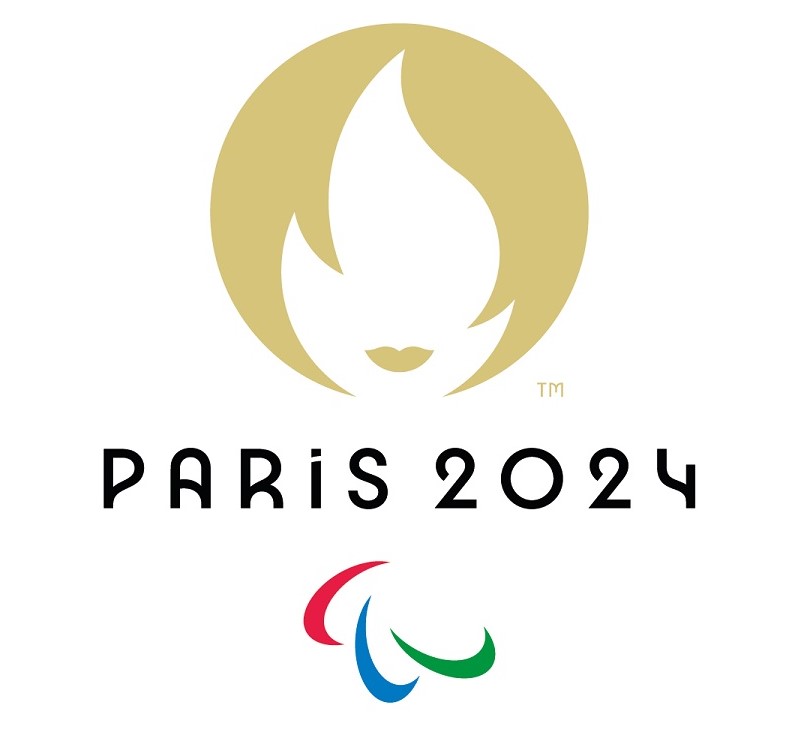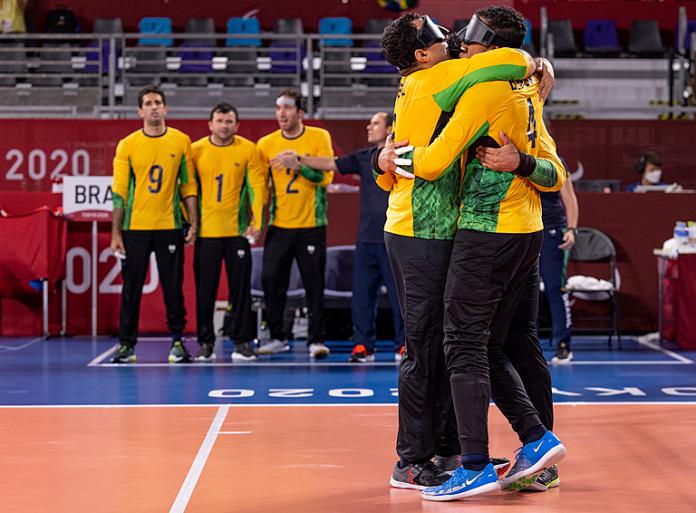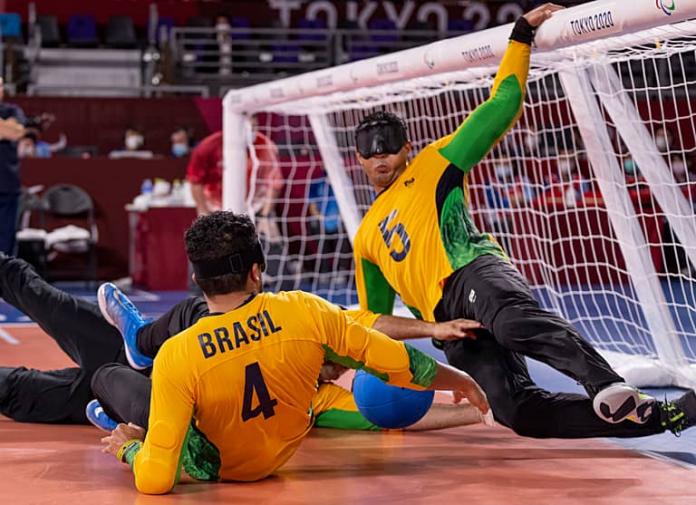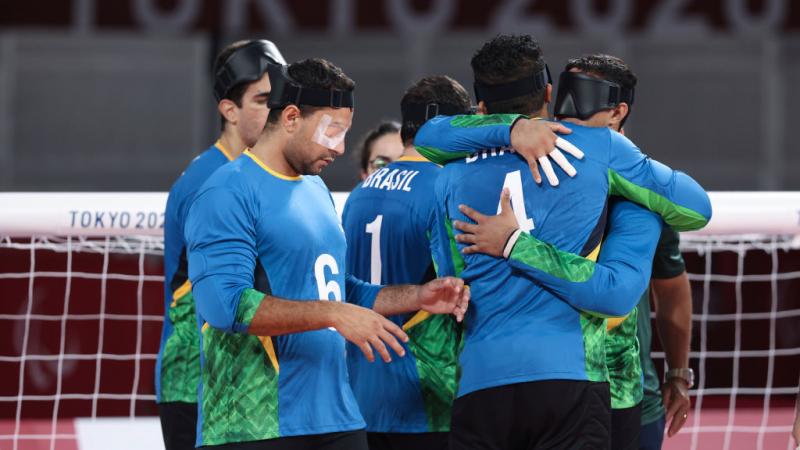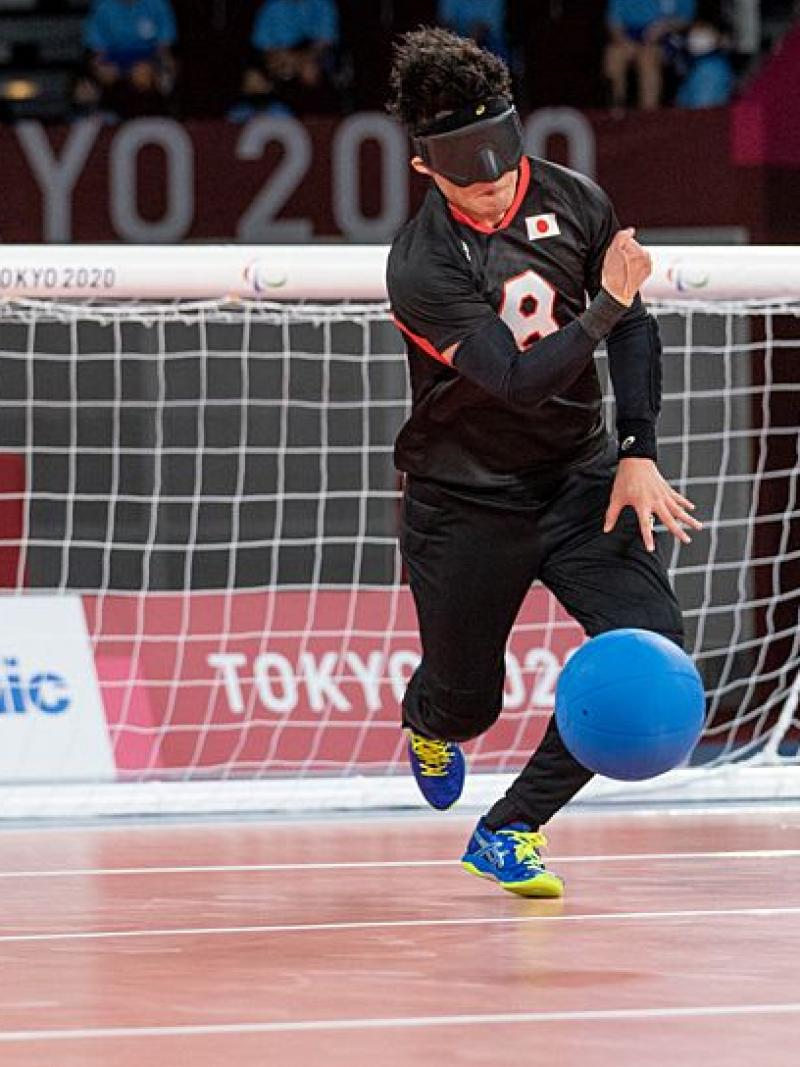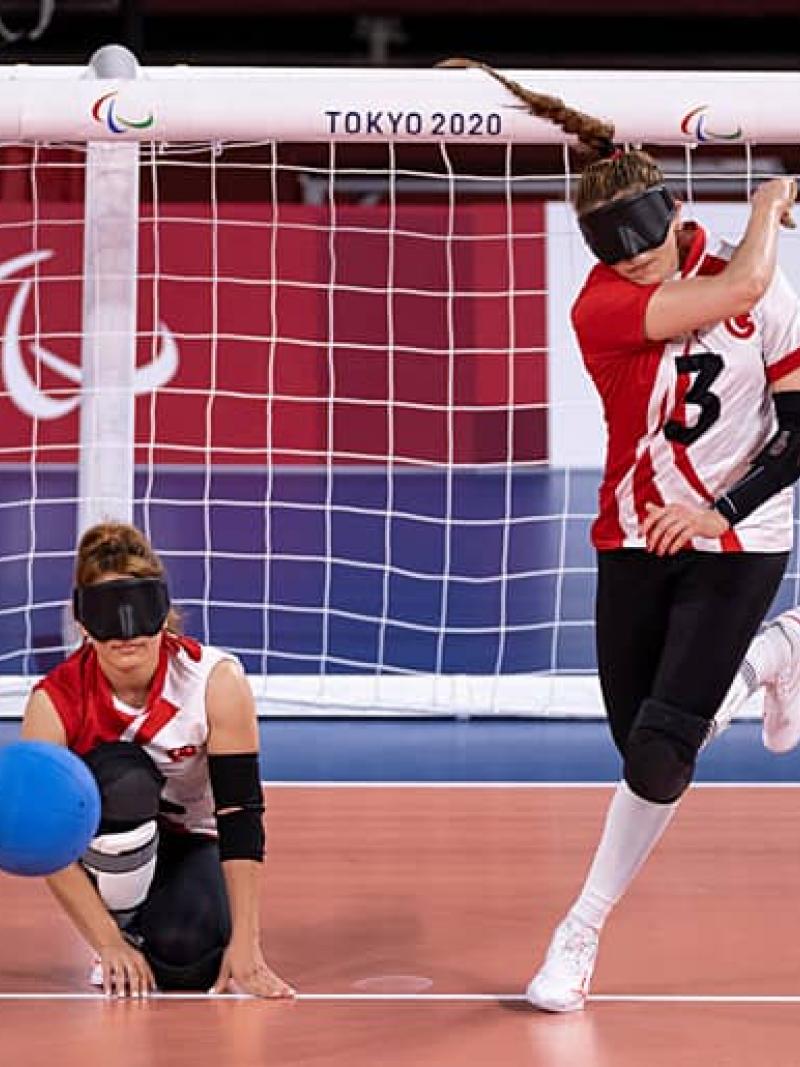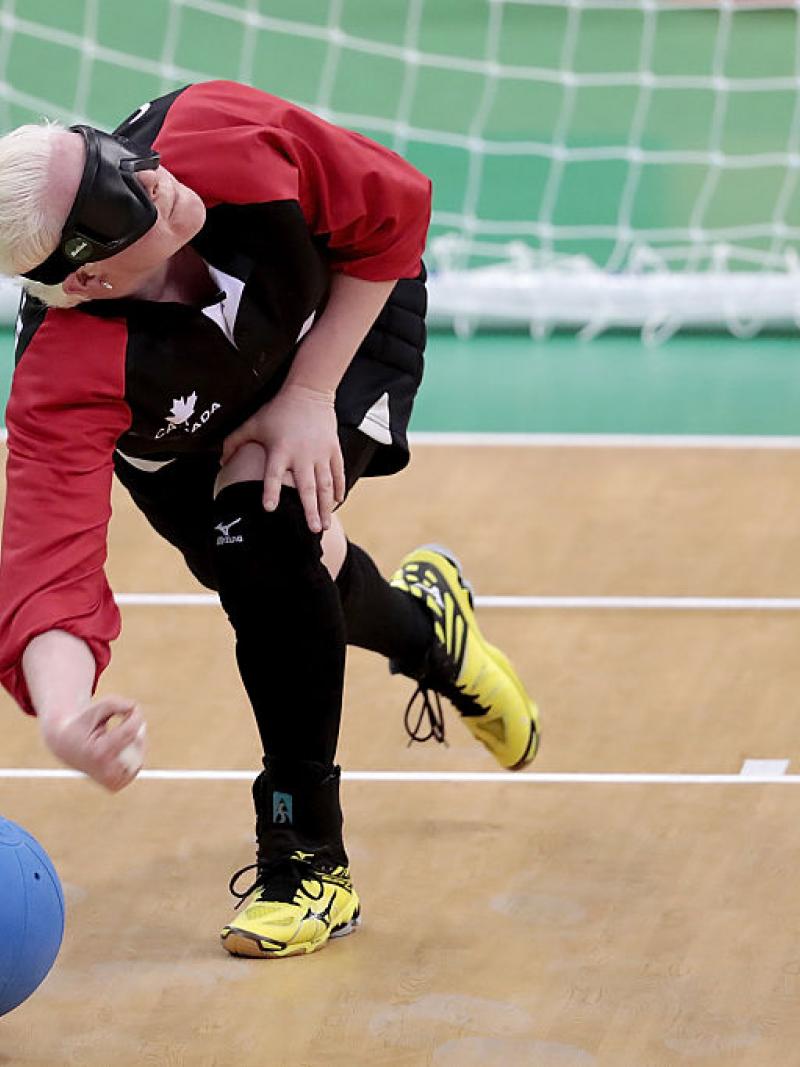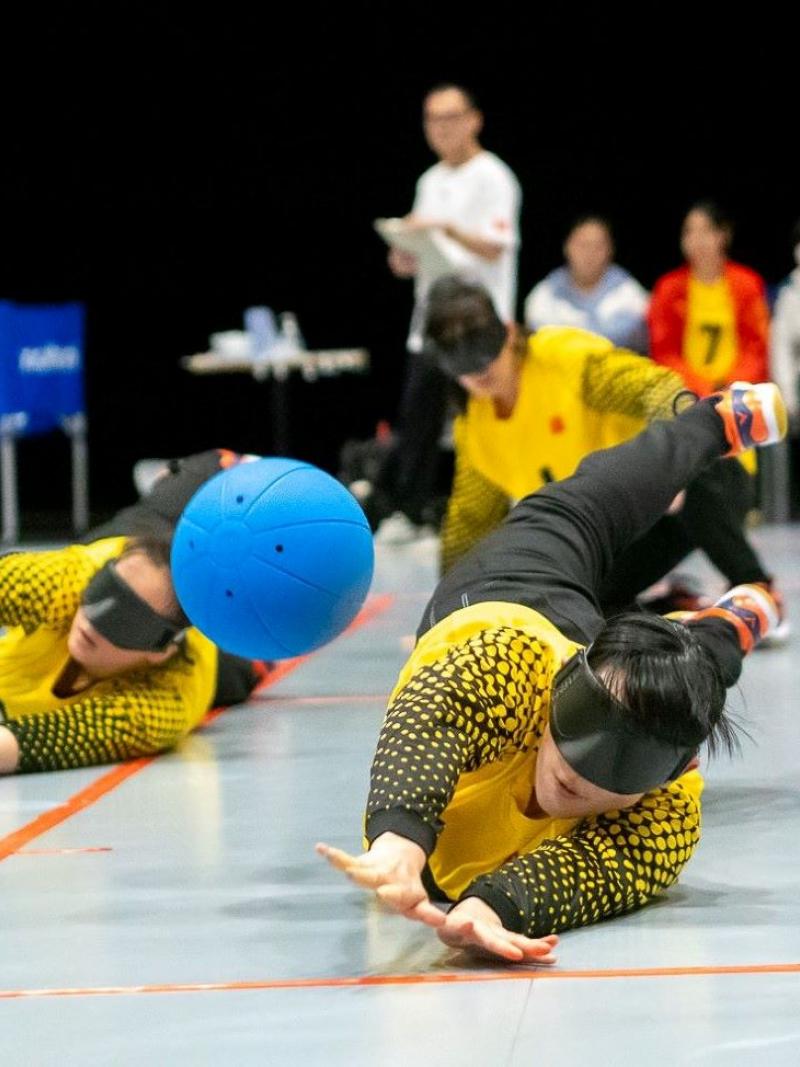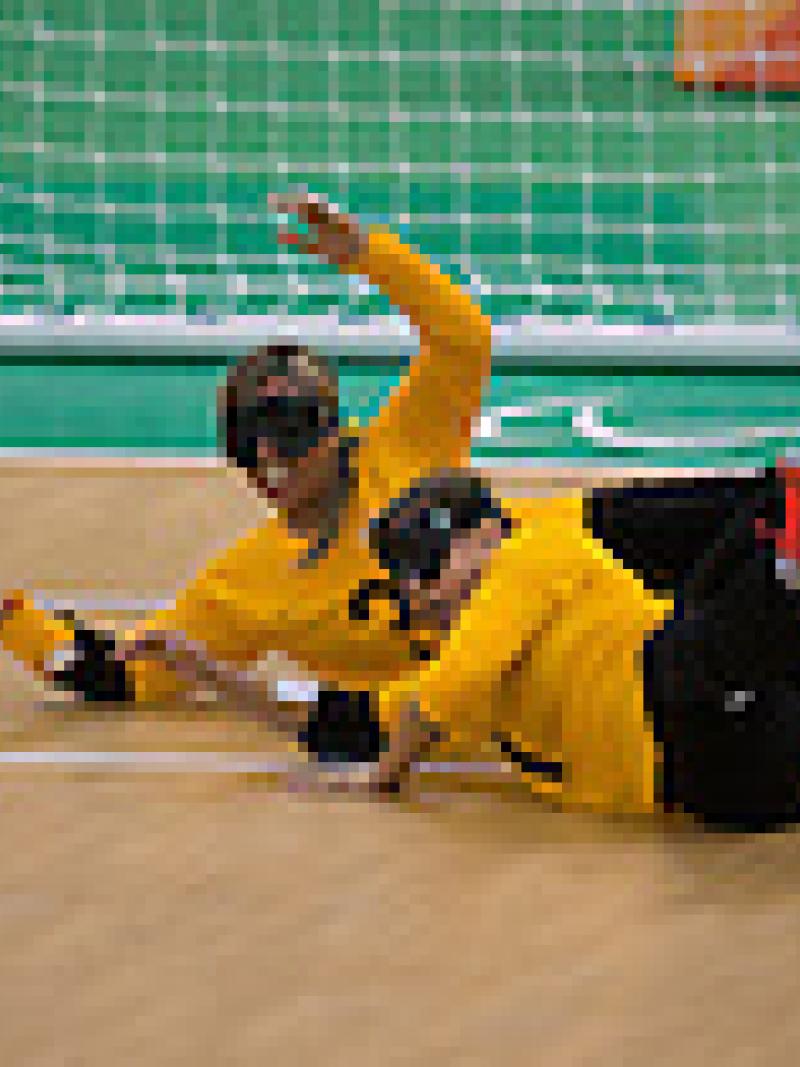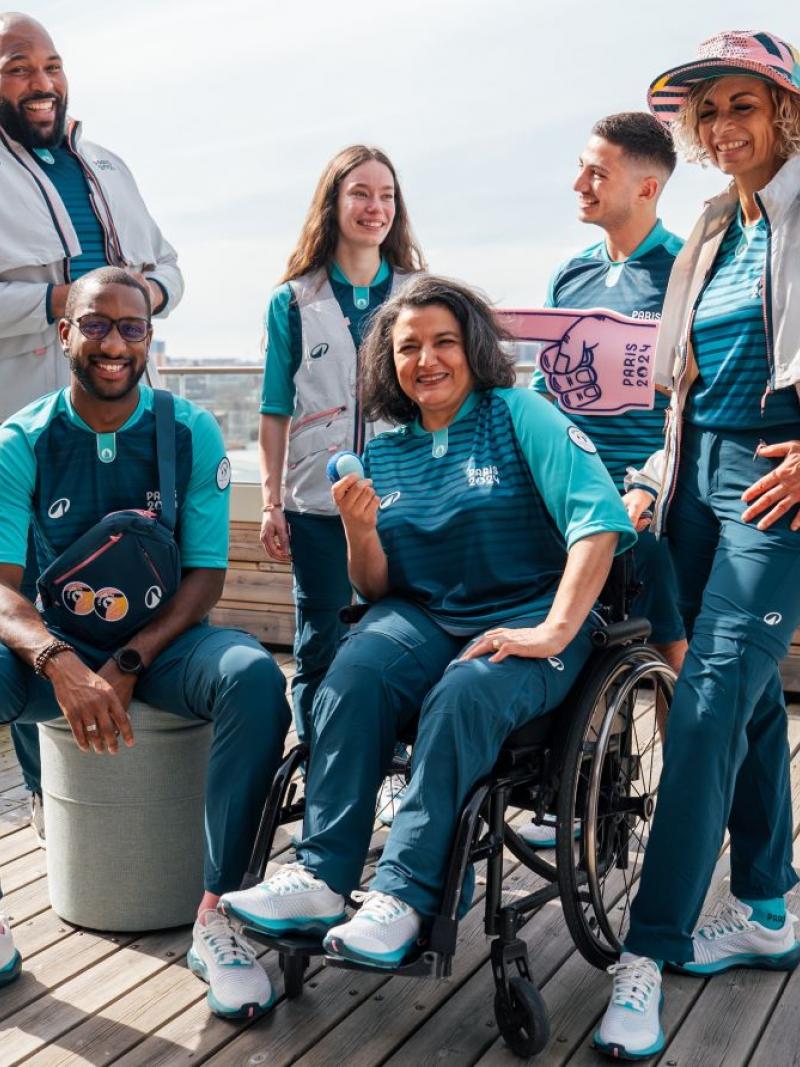Paris 2024: Josemarcio Sousa relives goalball glory moments
The top scorer from the Tokyo Paralympics reflects on his long journey to gold as he targets title defence this summer 18 Apr 2024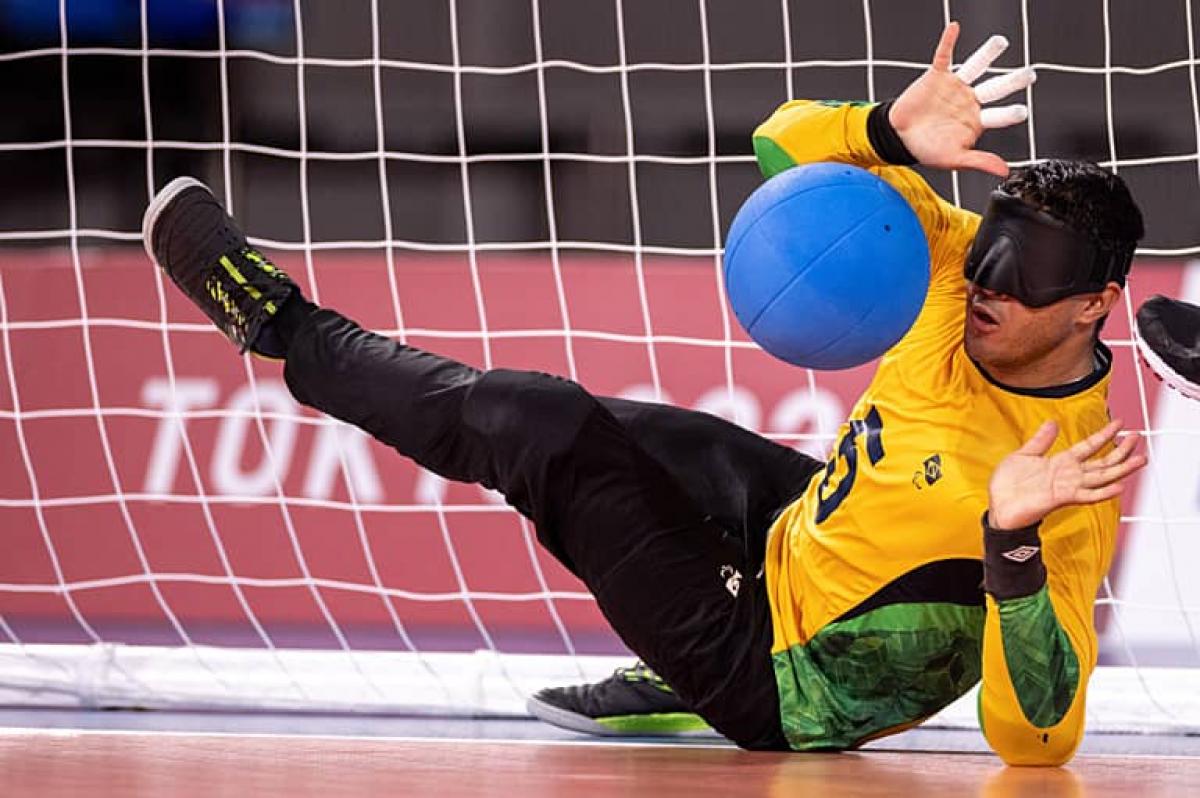
When he won a bronze medal in the men's goalball on home turf at the Rio 2016 Paralympic Games, Josemarcio Sousa made one dream come true. But five years later he topped it as he and his Brazil team climbed to the top of the podium as the Tokyo 2020 Paralympic champions.
"In Rio it was already good, with a bronze medal, and in Tokyo it was super positive," he said. "It improved the financial investments in us and our quality of life. With the investments in us we could get better equipment, training and food. Life got better for us and for our families."
"We could invest in better training facilities as well as in our everyday life," the 28-year-old said. "Now we can travel more comfortably and take direct flights. Before we had to fly with layovers."
Two very different Paralympics
A lot has changed since he won that first Paralympic medal in Rio, including his role in the six-player squad. "In Rio I was on the bench, a beginner. I didn't have any experience and I was the sixth player in the team," he said.
"In the test event (for Rio 2016) my coach put me together with the more experienced players and, thank God, I managed to secure a spot in the team."
In Rio, the team got a boost from the loud home fans in the stands.
"To play the Paralympics at home was sensational. There was huge support from the audience, something we normally see in football, volleyball or basketball. To have this at home in Brazil was very special."
In goalball, players wear eyeshades and use their hearing to control the ball that has a bell inside of it. However, Sousa did not have any problems with the unusually loud support from the stands.
"It was just very nice. It was an emotional thing because we had never had that amount of audience in our sport" he said.
When Brazil beat Sweden 6-5 in a dramatic bronze medal match, Rio's Future Arena almost exploded as thousands of supporters cheered for their home heroes, including Sousa, a 21-year-old Games debutant.
"It was a huge number of people. We would never have had in our minds that one day we could have that," he said.
"Our goal was obviously to win gold, but that didn't happen. But we knew that everything was part of a process and then it came in Tokyo."
In Tokyo, the atmosphere in the stands was different because of the Covid-19 pandemic. But beating China 7-2 in the gold medal match was still a very special moment for Sousa.
"It was emotional, because it was the medal our coach always had told us that we were missing. Because we had already won bronze and a silver before that (at London 2012)," he said.
"There was no big support from the stands, but the Brazil team got very well-received by the people in Japan and we are very thankful for that.
“We could feel that the fans were behind us, so we did not only represent Brazil, we also fought for Japan who supported us."
From benchwarmer to top scorer
In Tokyo, Sousa, or "Parazinho", as he is called in Brazil, became a key player. With 26 goals in the tournament, he shared the top scorer spot with China's Yang Mingyuan, scoring three goals in the final.
"In such a short space of time, I had become a starter in the national team. And to come away as one of the top scorers with Yang from China, and to have contributed to my team, I was overly happy," he said.
However, the gold medal was not just the end of an extended Paralympic cycle of five years. Sousa had come from a longer journey than that. Growing up in the state of Pará, in the north of Brazil, he had started with athletics but switched to goalball after a friend introduced him to it.
"When I started with goalball I had a dream but nothing else. I didn't have money, I didn't have training equipment, I only had a dream and that was to live off my sport. Nobody believed in me. I said 'one day I will live off my sport. I will get out of this village'."
And sport-wise it was not a flying start. "It was terrible, I got a lot of injuries and my mum told me 'My son, please stop with this, you will hurt yourself', but I said 'no, I'll stay, for my own sake'," he said.
In 2013 he was competing in a regional tournament and got called up to a national team pre-camp. In 2014, he was invited to play in the Sao Paulo league and moved to the biggest city in Brazil.
"My coach said, 'Parazinho, let's play, let's work together and you will become a great athlete'. So, I put in my head that I should become the best athlete in the world," Sousa said.
"I worked really hard, before Rio 2016, and even more after it. Because my big motivation was always to get to the top."
Sousa thanks his family, teammates and coaches for supporting him. "I thank God for the people who've believed and invested in me," he said.
"But this relies on me and my efforts. I will make sure to come home ’dead' every day. This gives results at world championships and Paralympic Games."
Off the court, he has a university degree in business administration. "I am getting a second degree now, in physical education, to prepare myself for my post-career life. After I retire, I want to continue to work with Para sports and contribute to its development."
Psychology key for Paris
In 2024, his goal is clear - to defend that title from Tokyo, hopefully in front of loud fans at the Paris Games. Every week, he trains four times with his club team and four times at the gym and wishes there would be more. With the national team they train 15 times per week and Sousa thinks that the Asian teams are on a similar level.
"China, Japan and (the Republic of) Korea have qualified for Paris, so they are training very hard for this too," he said. "I am just happy to see their results because that motivates me to train even harder. I think a lot about the food, about the preparations for the training and about the psychology."
Sousa thinks that the psychology will be key to defend the title at Paris 2024.
"The physical part will be important. But it is the mental part that will bring the victory," he said.
"When you win the semi-final and you're 'dead', you have to have the psychology to say 'now we need to continue, we need to be champions'. And the physical part will follow what the brain can achieve."




